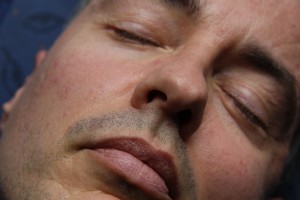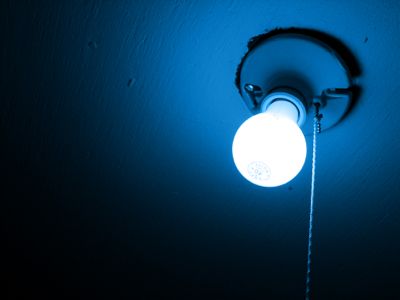Medically reviewed by Dr. Zac Hyde M.D)
Erectile Dysfunction & REM Sleep

Good morning wood is something you want to see every single day when you wake up.
And if you’re not seeing this wood three to five times Every Night, starting around 2 am and running all the way until daybreak, you need to fix the situation.
Because morning wood is a benchmark of reproductive health. A signal that your hormones, your vascular system and your brain are all functioning properly.
Good Morning Wood And REM Sleep
When you’re in a rapid eye movement (REM) sleep cycle, your body shuts down the production of norepinephrine, a neurotransmitter that constricts the blood vessels leading to your penis.
It does this so it can begin the repair and rebuilding process of your pipes.
So if you miss out on this REM sleep cycle, or fail to stay in it long enough, norepinephrine will stay elevated all night long, which will impact your wood the following morning.
This happens because norepinephrine constricts blood flow, which prevents the vasodilation of your corpus cavernosa, and if you can’t dilate the cavernosa, you can’t get an erection.
Morning, noon or night!
This lack of nighttime blood flow will also cause other problems, because the rush of blood into your penis at night oxygenates and repairs vascular smooth muscle cells while you sleep.
This process is so hard wired into humans, it even happens to women in a process called Nocturnal Clitoral Tumescence (clitorial erections) when they’re in REM sleep.
Ideally, you should spend about 25 percent of your sleep in REM, and if your morning wood is lacking, this is the very first thing you should work on.
35 percent of Americans get less than seven hours of sleep per night, meaning most of these people are falling well short of their REM sleep requirements.
And this lack of REM sleep not only impacts your morning erections, but it also increases your risk of developing heart disease, diabetes, depression, insulin resistance and obesity.
It also increases your risk of premature death from all causes.
How To Increase REM Sleep

- Cut the caffeinated beverages by 12 noon.
- Limit use of prescription and OTC meds, especially decongestants and antihistimines.
- Stop drinking alcohol 4 hours before bed (booze interrupts REM sleep).
- Sleep in a cool (by not too cold) room.
- Darken your room, with blackout drapes if necessary.
- Supplement with ZMA, which will enhances REM sleep.
- Set up sleep rituals and schedules and follow them every night.
- Take an evening walk to de-stress and calm your mind before you go to bed.
- Turn down the lights at sunset, especially LED lights which mimic natural sunlight.
This last point is critical, but one of the hardest to follow because blue light is emitted from mobile phones, computers, tablets, televisions and the lighting inside your home.
And the problem is, blue light mimic’s natural sunlight, and when you expose yourself to this wavelength after sunset, your body stays in daytime mode…on a hormonal level.
It actually reduces the secretion of melatonin from your pineal gland, a hormone you need at night so you can fall into REM sleep.
All the items listed above are important, but none of them will help much if you don’t limit your exposure to blue light after the sun goes down.
Pure red light has the least impact on circadian rhythms and melatonin.
Orange and yellow light, the dominant wavelengths in fire, gas lamps and candles, don’t reduce melatonin production too much either….
It’s the blue light that you need to worried about most, and there’s a very simple way to see if you’re exposing yourself to too much….
Stand in front of your home at night, and take note of the color coming through the windows. If your home looks like most do at night, it will be shrouded in blue light.
Also, if you spend your evenings in front of the television or on your electronics, you’re definitely overdoing it with the nighttime blue light.
Any electronic device with a self-luminous electronic display is going to put out enough blue to negatively impact melatonin secretion if you use it after dark.
Here are a few things you can do to get a grip on this…
How To Reduce Blue Light Exposure

- Go to bed early at night, and get up early in the morning.
- Put blue blocking software on your electronic devices (I use f.lux)
- If you watch television at night, wear blue blocking sun glasses ( improves REM sleep)
This final step will go a long way to normalizing your circadian rhythms, which will lead to more testosterone and human growth hormone secretion while you sleep.
It will also dramatically increase the odds that you’ll get enough REM sleep, especially if you’re out for 7 plus hours, as this is a sign of optimal melatonin production.
When you wake up, it important that you expose yourself to blue light to get the daytime hormones going again…and natural sunlight does this best.
And remember, if you wear sunglasses when you’re outdoors, you limit the amount of blue light that hits your retina which will disrupt your internal clock, and lead to less high quality REM sleep that night…
And if this REM sleep deprivation happens chronically, it can even lead to blatant erectile dysfunction during daylight hours, especially in men over the age of 40.
One more thing…
Most of you will experience an immediate boost in nocturnal erections once you start hitting your REM sleep mark.
And the key to quality REM sleep is optimizing the secretion of melatonin, the hormone that influences sleep the most.
So make sure your expose yourself to natural sunlight during the day.
But when the sun goes down, turn the lights off and avoid any light in the blue spectrum until you get up in the morning.
And remember…
According to Harvard sleep researcher Stephen Lockley, a mere eight lux of light – only about twice the amount put out by a small night light – is all it takes to disrupt your circadian rhythms and melatonin secretion.
Update: Good Morning Wood, Testosterone & REM Sleep
Getting enough sleep each night might seem an obvious thing to do, a no-brainer if you will, but you’d be surprised how many people sacrifice their much-needed rest in favor of seemingly more important things.
In other words, most people can agree that sleep is essential, but not everyone prioritizes it.
If you think five or six hours is enough and you don’t need more, read on to find out how sleep deprivation might be impacting your testosterone and if it’s worth it.
The Link Between Sleep, Testosterone Levels and Morning Erections
We are all familiar with the adverse effects of sleep deprivation because we’ve all experienced them.
Whether you’ve partied until 4 AM on a work night, pulled an all-nighter to study for a test, or spent endless hours with your screaming infant in your arms, you’ve felt it.
Common symptoms of sleep deprivation include irritability, sleepiness, an inability to concentrate, cravings for junk food, etc.
Interestingly, not getting enough sleep can impact morning wood and testosterone production, leading to many issues.
All of these effects tie to the body’s internal clock: the circadian rhythm.
Circadian Rhythms Testosterone & Good Morning Wood
Your circadian rhythm is the internal clock representing the physical, physiological, and psychological changes your body goes through within a 24-hour cycle.
Testosterone levels follow a similar 24-hour pattern that is largely influenced by your circadian rhythm. Levels of the hormone peak in the morning and gradually taper until nighttime.
Of course, these things are possible when you get enough sleep at night.
While you’re happily snoozing and wandering through cool dreams, your endocrine system stimulates testosterone production in the testicles.
Not sleeping well would disrupt the entire process, leaving you to start the day with less available testosterone and fewer morning erections.
If that explanation seems a bit far-fetched, consider a 2007 study examining the direct effects of sleep quality and length on morning testosterone levels in healthy men.
The premise was simple:
Each subject had a wristband that tracked their sleep quality and length. The participants then had their testosterone levels tested first thing in the morning.
According to the findings, men who got a full eight hours of sleep had twice as much testosterone as those who slept only four hours––500-700 ng/dl. vs. 200-300 ng/dl.
Sleep, Testosterone, and Good Morning Wood
Studies find a compelling link between sleep and testosterone levels, sexual health, and more.
For instance, a 2019 review paper examined some existing literature regarding sleep’s importance for testosterone and sexual health.
One of the findings is that there is a strong correlation between obstructive sleep apnea (OSA) and erectile dysfunction (ED).
According to data, OSA leads to ED in 47.1 to 80 percent of patients. Additionally, male patients with OSA are more likely to have lower serum testosterone levels.
Sleep apnea is a condition where breathing stops at various times throughout the night, severely impacting sleep quality.
Data also suggests that insomnia is a significant risk factor for sexual dysfunction and lack of good morning wood. The paper’s authors suggest that a drop in testosterone levels due to poor sleep is one of the most likely mechanisms at play.
Shift work can also significantly impact a person’s ability to get enough quality sleep, leading to a higher risk of adverse health effects.
Some reviewed data shows that poor sleep quality because of shift work can result in hypogonadal symptoms regardless of testosterone levels.
In other words, fragmented sleep might not necessarily lead to a reduction in testosterone levels. However, it could still lead to sexual dysfunction, a higher risk of depression, mood swings, and lack of morning erections.
Harmful Effects of Low Testosterone
It’s common knowledge that testosterone is crucial for male sexual function and desire, but it doesn’t stop there.
Here is a brief list of other adverse effects:
- Low sperm count and motility
- Muscle loss and impaired athletic function
- Reduced confidence and decisiveness
- Higher risk of suffering from anxiety and depression
- Mood swings
- Loss of motivation
- Impaired ability to lose weight
- Fat accumulation, particularly around the midsection
Testosterone is one of the critical hormones for male health, and sleep significantly impacts its production.
Okay, But How Big Is The Impact Of Sleep on Testosterone Levels?
After reading the previous points, you might wonder, “Okay, sleep is important, but how big of a role does it play in testosterone health?”
It’s hard to say because numerous factors impact hormonal health, but we estimate that each extra hour of sleep can boost testosterone levels by as much as 15 percent.
While that might seem high, it’s important to remember that sleep is one of the three pillars (along with physical activity and good nutrition) that support our health and well-being.
The problem is that our modern life has changed how we live. Before computers, smartphones, and other fancy gadgets, people followed a pretty standard routine: go to bed when it gets dark and wake up when the sun rises.
Thousands of years of living that way programmed the human body to seek routine and restful sleep.
Darkness promotes melatonin production, leading to relaxation and sleepiness, whereas light signals the body that it is time to wake up.
So, whether we like it or not, sleep plays a pivotal role in health, well-being, energy, disease prevention, and much more.
Testosterone production is one of the first things that takes a hit in men who sacrifice sleep for seemingly more important things.
How to Sleep Better: 5 Actionable Steps to Good Rest
1. Optimize Your Sleep Environment
The state of your sleep environment will play a significant role in your ability to get enough uninterrupted and quality sleep.
You should focus on four key areas:
- Darkness – get blackout curtains to keep your bedroom completely dark
- Sound – your room should be quiet; a pair of earplugs can help if you have noisy neighbors
- Temperature – keep your room cooler at night if possible; the ideal sleeping temperature appears to be between 65 and 70 degrees F
- Comfort – consider investing in a quality mattress and pillow, as both can make a huge difference
2. Avoid Electronic Devices for Good Morning Wood
Electronics have become an integral part of modern life, but you should stay away from them before bedtime.
The blue light emitted from screens (TVs, computers, tablets, and, yes, your smartphone) and the frequencies of electronic devices can mess with your circadian rhythm, impacting your ability to fall and stay asleep.
A good rule to follow is to avoid any electronics within an hour of going to bed. Set your alarm clock, answer your final emails, catch up with your favorite TV show, and shut everything off to give your mind a break from the constant stimulation.
3. Be Careful With Caffeine, Alcohol, and Nicotine
Caffeine and nicotine act as nervous system stimulants and can severely impact your ability to get enough restful sleep.
Data shows that caffeine has a half-life of around five hours.
If you ingest 150 mg at 5 PM, you might still have up to 75 mg coursing through your system at 10 PM. Limiting your intake within six to eight hours of bedtime is best to be on the safe side.
Similarly, you should avoid nicotine for at least four hours before bedtime because it can also impact sleep and increase the risk of sleep apnea and other conditions.
You might be surprised to find alcohol on the same list, given that it acts as a nervous system depressant and can make you feel woozy, lethargic, and relaxed.
Unfortunately, while a nightcap can help you fall asleep more quickly, research suggests that it can reduce the amount of rapid eye movement (REM) sleep you get.
4. Exercise Consistently
Regular physical activity is beneficial on many fronts, including by supporting long and restful sleep.
Throughout human history, people have been incredibly active. Between long passages, material gathering, and animal hunting, our ancestors rarely had time for idling.
In more recent history, movement has come in the form of hunting, doing agricultural work, building homes, and similar.
But today? A record-breaking number of people lead a sedentary lifestyle, which has a severe negative impact on health and sleep quality.
One great habit that can improve your sleep is regular exercise: jogging in the park, lifting weights at the local gym, doing home workouts, and much more.
Getting reasonably tired is crucial for good health and deep, restful sleep.
5. Take a Melatonin Supplement
Melatonin is a hormone produced by the pineal gland in the brain in response to darkness. The hormone enters the bloodstream, helping regulate the circadian rhythm and promoting good sleep.
You can also take melatonin in a supplement form to promote better sleep. According to research, a dose of 3 mg or less within an hour of bedtime leads to better sleep and reduces the risk of fatigue the following day.
Here are a few other honorable mentions:
- Try ashwagandha; a herb claimed to reduce stress, boost T levels, and improve sleep
- Go to bed and wake up at similar times to establish a routine
- Avoid napping in the late afternoon
- Lose some weight if you have to
- Seek professional help if you suspect you have obstructive sleep apnea (OSA)
Good Morning Wood Conclusion
There is an integral link between sleep, testosterone and good morning wood.
Every extra hour of sleep can significantly boost your testosterone levels and fire up morning erections leading to better health and many other advantages.
If your goal is to feel great, maintain your motivation, perform well in the bedroom, and live longer, prioritize sleep and watch your T levels and morning wood soar.
References:
Amber lenses to block blue light
Sleep apnea and erectile dysfunction
REM erections and sexual impotence
Noradrenaline in rapid eye movement sleep
Blue blocker glasses & melatonin production
Sleep disorders insulin resistance and obesity
Treatment of melatonin deficiency and dysfunction
